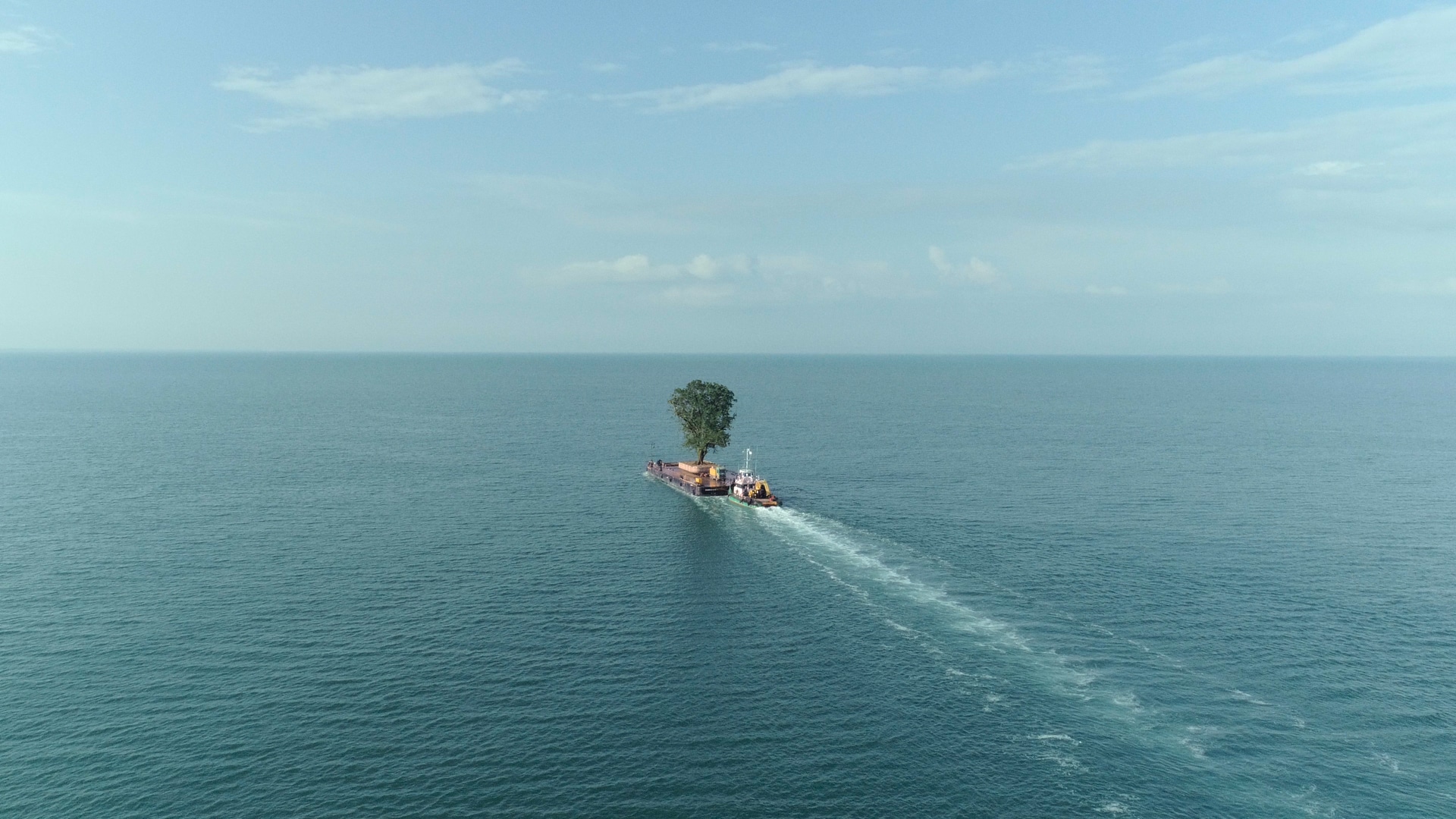





The Black Sea, with its rich history and contemporary geopolitical significance, is at the heart of the seventh edition of the London Georgian Film Festival: Reflections on the Black Sea held at the Ciné Lumière in South Kensington from 28 September – 3 October. The festival takes place against the backdrop of Russia’s war in Ukraine, the fallout of which has made the Black Sea the focus of global attention.
The London Georgian Film Festival provides a rare opportunity to see 2020s Contemporary World Cinema from Georgia, Romania, Turkey and Ukraine, alongside previously banned 1920s silent films with live piano accompaniment. Through the selection of films from these countries, the festival takes audiences beyond the news headlines of the conflict to look into the lives and historical context of the people in the region. The programme features films from emerging filmmakers and writers, highlighting the experience of women and the LGBTQ+ community, and almost half of the films in the festival are directed by women. Summer Rutterford-Morley takes us through some of this year’s festival highlights.
International festival hit A Room Of My Own directed by award-winning filmmaker Ioseb ‘Soso’ Bliadze and co-written by actor Taki Mumladze. Tina (Taki Mumladze) has left an abusive marriage and moves in with hard-partying Megi (Mariam Khundadze). As Tina struggles to find her independence, she and Megi form an intimate bond which neither woman anticipated. The release of the film was a risk; similar films with LGBTQ+ themes have been met with protests in Georgia.
Snow And The Bear is the directorial debut of Turkish filmmaker Selcen Ergun. The film premiered at the Toronto International Film Festival and follows a young forward-thinking nurse called Asli, who arrives at a remote Turkish town cut off from the world by an endlessly harsh winter amidst rumours of bears awakening early from their winter sleep. The film mirrors the constant pressure of feeling unsafe as a young woman in Turkey, where just 6% of films are directed by women.
The gripping Romanian drama Miracle, directed by Bogdan George Apetri, follows the tragic journey of Cristina Tofan, a 19-year-old novice nun, caught between the man’s world she has grown up in and the repressive old-fashioned isolated convent where she seeks sanctuary. The film unfolds as an unpredictable and captivating story while commentating on Romanian society and attitudes towards women.
Let Us Flow is Sophio Medoidze’s first feature documentary, offering a nuanced perspective on the annual August festival of the Tush people, as the filmmaker records young men visiting sacred ancestral shrines not accessible to women in the community. This poetic film considers the importance of ritual, the maintenance of community ties, and how modernisation and migration are transforming rural landscapes.
Anna Japaridze’s short film Glasses Crack, Tablecloths Splinter: Salvaging Georgia’s Undigitized Home Video Cassettes begins with home video footage following her birth in Tbilisi, soon after the collapse of the Soviet Union. Raised between Tbilisi and London, the film revisits Japaridze’s memories through footage and draws on the collective memories of many Georgians, through the time capsules of newly digitised home videos.
The Crazy Stranger by award-winning director Tony Gatlif is a fascinating classic film about World music and will be introduced by World music expert, film and music producer Joe Boyd. The film won Best Film at the Locarno Film Festival in 1997 and follows a young, passionate Frenchman on a mission to find a folk singer in a Romanian village, where he gets entangled with the life of the local Romani community and musicians.
The festival will also screen in the UK for the first time two recently restored classic silent films with live piano accompaniment by John Sweeney, highlighting historical parallels and recurring themes across generations. Banned by the Soviet authorities, The Self-Seeker is a brilliant, satirical film that follows an easy-going Kyiv opportunist as he tries to avoid the 1917-1921 civil war with the aid of a miraculous camel. The film will be preceded by a reading of a Ukrainian poem and will support Siobhan’s Trust, which is delivering assistance to Ukrainian communities on the frontline.
Against the breathtaking backdrop of the Georgian mountains, Vladimir Barskiy’s 1927 film Bela offers a deep dive into history, highlighting love and cunning in the Caucasus. Vladimir Barskiy also played Commander Golikov in Eisenstein’s masterpiece Battleship Potemkin. @Summer Rutterford-Morley
The London Georgian Film Festival: Reflections on the Black Sea will be held at the Ciné Lumière from 28 Sept – 3 Oct 2023